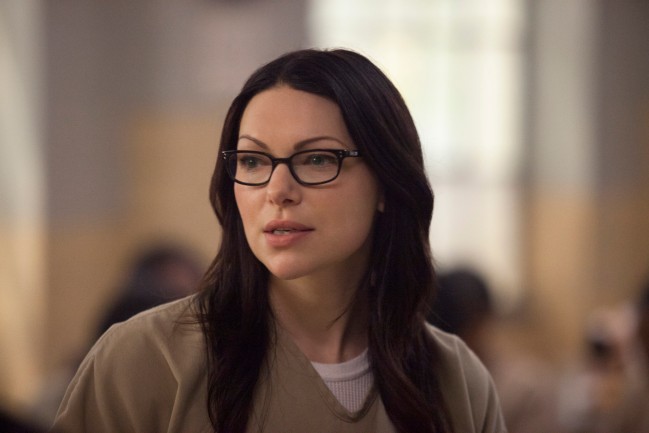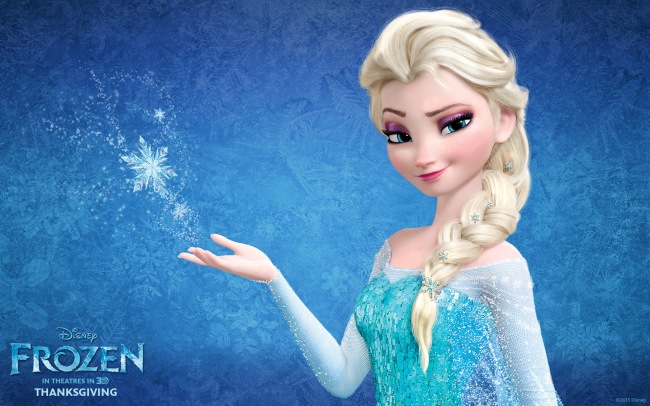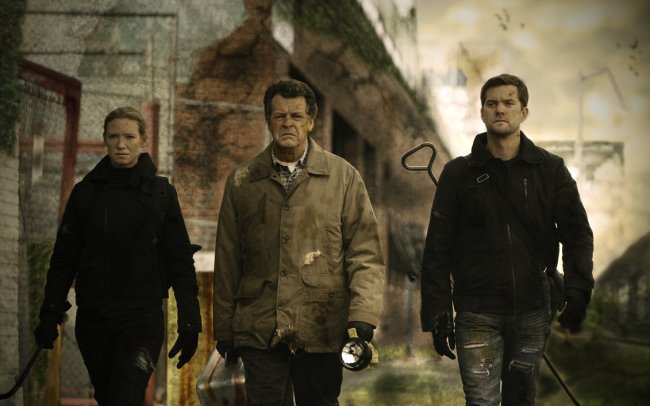In light of the recent suicide of teen Leelah Alcorn, I have found myself thinking about and discussing my own history with suicide. For those who do not know, she committed suicide and later a suicide note appeared on her tumblr account (from her queue) explaining that she’d been dealing with parents who had been denying her access to hormones for transitioning, and who had also been forcing her into conversion therapy to try and make her stop being trans.
I think it’s pretty obvious to anyone with a shred of human decency why that is not okay. And it doesn’t take much imagination to understand why someone in that situation would have thoughts about committing suicide. For me, it doesn’t take any imagination, because I was on the verge of committing suicide at three different points in my life.
Writing this has been a little tough for me. I’ve never told anybody the details about these before, though in recent years I’ve tried to be open about their existence. But I think now is the appropriate time for full disclosure.
The first time was also the least severe. I had hidden one of my mom’s bras and taken to occasionally wearing it in my room. It was comforting. But then my dad caught me wearing it. He blew up in my face, yanking down my shirt fast enough that it hurt me (and permanently stretched the shirt) and asked me what the hell I thought I was doing. It’s important to note that my dad never swears, and it was only on this occasion and the time I accidently dropped a riding lawn mower on his foot that I’ve ever heard him do it. But it was what he said next that really did the permanent damage: “You had better not be gay.” It wasn’t just the words; it was his tone. There was utter disgust in his tone and in his eyes, and I got the feeling that if my response was anything different than what he wanted that he would throw me to the ground and squish me out of existence. Thinking back, perhaps I wanted him to discover me. As scared as I was, I wanted to stop hiding, to stop pretending. But if that was testing the waters, all signals came back screaming “Retreat!” at the top of their lungs.
I mean, I wasn’t gay. I’m still not. I’ve never been straight; I’m bisexual. But my sexual orientation had nothing to do with wearing the bra, and so I was completely honest with my response to him: “I just wanted to know what it felt like.” I also wanted to continue knowing what it felt like, every day for the rest of my life. But I left that second part out. And that moment was the first time I felt like I was never going to be able to be me. Later, when I took a shower, I broke down and cried, imagining what it would be like to kill myself. I could plug up the tub and lay face down, closing my eyes and releasing myself to the universe. Maybe the universe would actually like me.
But instead of plugging the tub and floating away, I just hugged my knees and sobbed my heart out, the shower water muffling my tears. I have wondered time and time again how my life would have been different if I had come out at that point (I was twelve). My parents have told me that of course they would have loved me and been as awesome as they are now, but that confrontation with my father certainly made me think they wouldn’t have been. And so as I see article after article reporting Leelah’s death, I wonder if that could have been me. I wonder if my (very Christian) parents would have shoved me into conversion therapy. I wonder if they would have denied me access to hormone blockers and then HRT when I became old enough.
I think I did a little bit too good of a job of hiding myself after that. Acting came easily to me – likely due to my 24-hours-a-day, seven-days-a-week performance – and I began doing shows regularly, including being involved in some way with all but one of the shows my high school put on while I was attending. And during my junior year I auditioned for the All-State Production of Les Miserables at the Illinois High School Theatre Festival, and wasn’t cast. I was certain that it was because of how I looked. I had never liked my image post-puberty (as you might imagine), and had already been dealing with on-again, off-again anorexia for several years. And so without any specific prompt that I can remember, I felt crippled by the disappointment and transferred that frustration to my feelings about how I looked. I looked wrong and felt wrong, and I didn’t think I could ever possibly look right, much less ever feel right. I wanted to rip my consciousness out of my body. I wanted to leave the hurt and the awfulness and the “not-me-ness” behind. I didn’t care if there was nothingness or eternity waiting. Anything was better.
And so I made plans to end my life. I wrote a suicide note. I gave my stuffed animals to my sister. The plan was the same as before: in the tub, face down, relaxed. But instead of taking my shower that evening, I sat on my bed. I struggled against myself, and the only way the part of me that didn’t want me to go through with it could manage to stop me was by not letting me do anything. If I moved, then I was dead. But I didn’t move, and eventually I fell asleep. When I woke up I was still upset, still depressed, and nothing looked better, but I didn’t feel like ending my own life that day. At that point I was completely certain that the way that I would die was by suicide. I just didn’t know when.
Several years passed. I left home for college. I graduated from college. The job market was awful, so I struggled to find a job, but I eventually found one that was *slightly* above minimum wage. And I began dating a girl who lived several states away. Our relationship was really never a good one. I did all the traveling to her, we only saw each other about once a month, and we were constantly texting/messaging/skyping. After several months of being together, she kissed someone else and told me about it, and we had the conversation of me not being okay with that, but trying to figure out how to make things work; it went downhill from there. No matter what I did or what I said, she took the opposite position. She would constantly block me on facebook and refuse to answer messages/calls, then yell at me when I stopped sending them or calling. So the next time I wouldn’t stop (as per her request from the last time), and then she’d get mad at me for not stopping. This back and forth lasted for about three months. I’m terrible at ending relationships, even really bad ones, but finally we broke up, she began to date someone else (not the person she had kissed), and I was completely heartbroken. I felt worthless and that everything bad was happening because I wasn’t made right. Once again those feelings of desperation and hopelessness rose up within me, and I knew that this was the right time to end it. My extra rationale was that no one would ever suspect that it was because I was really a girl; they’d just think the breakup hit me hard. I didn’t feel like I’d be missed by anyone, and my roommate was out of town for the weekend. So I got undressed and got in the shower, turned on the water and plugged up the drain, and sat down waiting as the water filled the tub. And I hated myself and I hated my body, and I hated everything that was wrong with me. But with the water filling up, I couldn’t stand the thought of someone seeing my naked body. I knew I didn’t want to be an anonymous façade, and for the first time in my life I actively thought about what I might be able to do to fix my situation. I pulled back from the brink long enough to investigate one last sliver of hope, and the moment was past.
Unfortunately for me, I didn’t know where to look, and I didn’t have the words to even ask the right questions. So everything I discovered was either an easily debunkable “magic” spell or potion, or used words like “tranny” or “he-she” that made me feel icky about my body. My lack of results combined with quickly getting into another relationship put a damper on discovering the right words and the existence of HRT for another few years.
* * * * *
In the comments sections of the articles about Leelah, many people continue to misname and use the wrong pronouns. Several of the articles even include or supplant her name with the wrong name in their titles. And this really doesn’t make any sense to me. One set of my grandparents have yet to use the appropriate name or pronouns to refer to me, but instead they use my first initial (which is the same as the first letter of the name I was given), and awkwardly refuse to use any pronouns when referring to me. I’ve never understood why something like this is so hard for people to do. For anyone else in the world who was dissatisfied with the name their parents had given them, people would honor their nickname or chosen name without batting an eye. Robert likes to be called Bob. Gertrude wants to be called Lexi. It doesn’t matter what a person believes about trans people, it is one of the most basic human decencies to refer to someone in the way they want to be referred. I mean, in the play, Arsenic and Old Lace, “Teddy” is still called Teddy, even though he only wants to be called that because he thinks that he is Theodore Roosevelt! And nobody says crap about them extending this courtesy to someone who is *actually* suffering from delusions or some other form of mental illness.
And that leads me to my final point of the evening: why do people even have a stance on trans people anyway? It’s a bit like people having a “stance” on blondes. “Yeah, I don’t believe in blondes. They’re really just brown haired people who are confused.” The reasoning behind their logic for “not believing” in trans people is even more sketchy: “You have an experience that I have not had, but I’m sure it’s not actually real, because it’s not something that I’ve had to deal with.” By that same logic: I’ve never liked grapefruit, so clearly anyone who says they like grapefruit is lying or confused. Possibly both. Regardless, I should clearly make it my duty to make their life miserable if they insist on perpetuating this “delusion” that they like grapefruit.
And it is people like that who killed Leelah Alcorn. When a person “decides” to commit suicide, it’s not the kind of decision where you decide to hit the snooze button or where you decide what type of bread to order at Subway. When a person commits suicide, it’s because they’ve been struggling. And their “decision” is to stop swimming against the massive current. To let it pull them under. And those currents that pulled Leelah under? They’re the transphobia that is perpetuated by our society. We’re all responsible, every one of us who has ever perpetuated anything transphobic, every one of us who remains silent when someone else perpetuates something transphobic. The good news is that we’re not too late. Countless kids, teens, and adults are standing right where Leelah was standing. They’re standing there right now. I’ve stood there before. One day, I might be standing there again. I need you – we all need you – to end this cycle of hatred. We are Leelah and we are dying.



